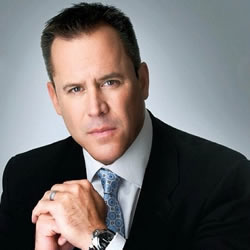I despise making mistakes. And that’s made so much worse by the fact that I earn my living writing 100,000+ word documents that millions of people read. What are the chances that I nail every hyphen, every fact, and every setting?
Pretty much zero as it turns out. Readers have keen eyes and they let me know when I slip up. Use the word cement when you mean concrete? Get hammered by engineers. Clip instead of magazine? Then it’s gun aficionados.
The list goes on…
Over the course of a quarter century in this business, I’ve made errors that run the gamut from really stupid to so minuscule that only one or two readers would ever pick them up. Below are a few of my most entertaining ones arranged in the categories my mistakes always seem to fall into.
Hopefully, looking through them will make readers slightly more sympathetic. And serve as a cautionary tale for my fellow authors.
Pre-Internet
When I was writing my first novel, Rising Phoenix, research was so much more difficult. With the Internet still in its infancy, I spent a lot of time prowling libraries, phoning my contacts in the government, and scrolling through microfiche.
Shortly after the book was published, I started getting correspondence addressed in pencil. It turns out that this is how you could tell a letter was written from prison. Apparently, inmates didn’t have access to pens.
All were a variation on the same theme—telling me how much they enjoyed the book, but that smoking crack from a plastic pipe would cause it to melt. Toward the end of the letter, they would assure me that they had impeccable credentials in this area as they were serving a significant sentence for narcotics violations.
Today, glass pipe appears in the first sentence in the crack pipe entry on Wikipedia. So much more civilized.
Blissful Ignorance
These are errors that work their way into my books because I know so little about the subject that it never even occurs to me to ask a question.
Dog team and crew in Antarctica in January 1911 with Mount Erebus in the background. Photo: National Maritime Museum, Greenwich, London. Public Domain.
In The Survivor, I talked about sled-dog training Mitch had done in Antarctica. We’ve all seen the old photos of early arctic explorers with their teams, right? Well, it turns out that dogs were banned from Antarctica in the early 90s. Based on Mitch’s age, he would have been relegated to a snowmobile.
In a way, I don’t regret that error. Only one person caught it and there’s something incredibly romantic about the image of Mitch flying across the snow behind a bunch of huskies.
Too Mundane To Give Much Thought
There are a shocking number of procedures and everyday items that we think we understand better than we actually do.
In Red War, General Sokolov was armed when he went into a room where another character was undergoing an MRI. I never thought twice about this scene until a physician pointed out that the magnetic field produced would have serious consequences to anyone carrying metal.
So obvious when you stop to think about it!
Presumed Expertise
These are my favorite kinds of mistakes—facts that I refuse to check because I’m so certain of my knowledge.
My third book, Free Fall, introduced a rock climber who finds herself mired in a political scandal. At one point in the story, she talks about a route called Lactic Acid Bath at the New River Gorge in West Virginia. I’d worked on that climb when I lived on the East Coast, so I didn’t bother to grab my guidebook and confirm the location.
A reviewer for Climbing Magazine took great pleasure pointing out my confusion. All the more painful in that pretty much every friend I had at the time was a subscriber.
There’s also an error in The Survivor that squarely falls into this category. Mitch is in a black cab in London and he pays with a 100-pound note—a denomination that doesn’t exist.
This error is particularly funny because I finished that book while living in London and had also lived there while my father was the legal attaché to the UK.
I’d always assumed that they were out there somewhere, but that I was too poor to have seen one.
What Have I Learned?
The most important lesson is to not get defensive. If you make an error in a book—or in life, for that matter—own it. When readers send corrections, I gratefully forward them to my publisher for when the paperback version goes into production. E-books can be updated immediately.
Still, I continue my quest to create a perfect manuscript. Perhaps with age will come increasing wisdom. Or maybe just increasing forgetfulness. We’ll see…
If you’re not following Kyle, connect with him on Twitter, Facebook, Instagram, or his website.




